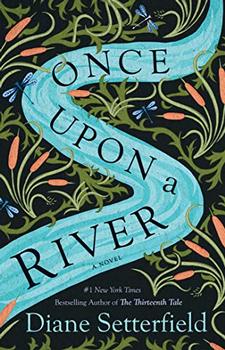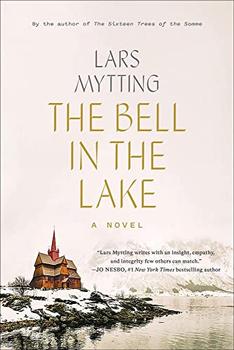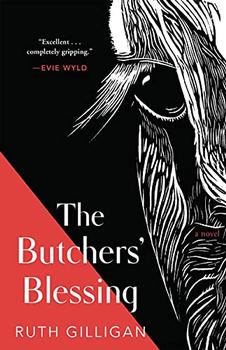Summary | Excerpt | Reading Guide | Reviews | Beyond the book | Read-Alikes | Genres & Themes | Author Bio

The novel is set in Radcot in the late 19th century, where a popular gathering place called the Swann Inn has a history of storytelling. On cold, dark nights the locals gather inside to share drinks and listen to gifted raconteurs recount popular folktales and legends. It is on one such night that an injured stranger bursts through the inn's doors clutching the drowned corpse of a little girl. But just as the local nurse Rita Sunday is about to declare her officially dead, the little girl returns to life. Is it a miracle or something far more sinister? And who does the girl belong to?
Word of these events quickly spreads around the village and soon there are several claims to the four-year-old girl. Anthony and Helena Vaughan hope to identify the girl as their daughter Amelia who had been kidnapped two years prior. Farmer Robert Armstrong believes her to be Alice, the illegitimate child of his wayward son Robin. And the middle-aged maid Lily White is certain it's her sister Anne, despite the age difference and the fact that both her parents had died long before this four-year-old was born. Stranger still, other locals are convinced the girl is the drowned daughter of Quietly, the ghostly specter who supposedly ferries the souls of the dead across the Thames. The girl herself doesn't speak, nor does she seem to recognize anyone. It falls upon each of the claimants to make their best case for her, but not everyone in Radcot is keen for the truth to come out.
Setterfield has crafted a complex and captivating novel that at its heart is very much about the nature of stories and how they connect communities. Throughout, the symbol of the ever-flowing river binds the characters together and shapes the arc of the narrative. As Setterfield eloquently puts it: "A river no more begins at its source than a story begins with the first page."
Those who appreciate novels with a large cast will revel in the many brilliantly written characters in Once Upon a River. As each new person is introduced, Setterfield sheds light on their pasts and present, making for a richer read. There are so many characters introduced within the first hundred pages that it can feel quite overwhelming at first. But each individual is so exquisitely brought to life that the reader is soon intimately acquainted with everyone.
Setterfield possesses a rare gift. She is able to endow even the most bit-part actors with rounded, intriguing backstories that never overstay their welcome and never read dry. In some cases the reader will undoubtedly be left wanting more. Case in point is Margot Ockwell, the landlady of the Swan, who has twelve lookalike daughters and a son Joe who wishes to grow up to be a celebrated storyteller like his father. They are such an endearing bunch that one might hope Setterfield has plans for a spin-off novel set around the Ockwells and their day-to-day life in the inn.
The story of the good-hearted, animal loving Robert Armstrong - the son of a black father and white mother - and his embattled relationship with his stepson Robin is particularly poignant. But it is arguably Rita Sunday who steals the show. This headstrong, inquisitive woman of science begins to conduct experiments to unravel the supposed magical resurrection. With the help of photographer Henry Daunt – the injured man who stumbled into the Swan – Rita becomes instrumental in tying together the various mysteries and intrigues surrounding the families who claim to be connected to the mute girl.
While some may find the denouement overly elaborate and a little too conveniently tied together, Setterfield leaves one particular enigma wholly unresolved, allowing the Radcot locals (and of course the reader) to theorize and invent their own potential offshoots and endings to this tributary of the tale.
Once Upon a River is a spellbinding feat in storytelling. It weaves together elements of whodunnits, fairytale, suspense, and Jane Austen's tradition of domestic stories, to create something very much of its own.
![]() This review was originally published in The BookBrowse Review in January 2019, and has been updated for the
August 2019 edition.
Click here to go to this issue.
This review was originally published in The BookBrowse Review in January 2019, and has been updated for the
August 2019 edition.
Click here to go to this issue.

If you liked Once Upon a River, try these:

by Lars Mytting
Published 2022
The engrossing epic novel - a #1 bestseller in Norway - of a young woman whose fate plays out against her village's mystical church bells.

by Ruth Gilligan
Published 2021
Set in the gothic wilds of Ireland, The Butchers' Blessing is a haunting and unforgettable thriller brimming with secrecy, tradition, and superstition.
Your guide toexceptional books
BookBrowse seeks out and recommends the best in contemporary fiction and nonfiction—books that not only engage and entertain but also deepen our understanding of ourselves and the world around us.